Extra Challenge Time Worksheets for Ages 5-7
12 filtered results
-
From - To
Introducing our "Extra Challenge Time Worksheets for Ages 5-7"! These engaging worksheets are designed to boost your child's understanding of time in a fun and interactive way. Perfect for young learners, our worksheets cover essential concepts such as telling time, understanding hours and half-hours, and using analog and digital clocks. Each worksheet features a variety of challenging problems tailored to reinforce time-telling skills while keeping kids motivated. With clear instructions and appealing designs, these resources make learning about time an enjoyable experience. Perfect for homework, extra practice, or classroom use, give your child an extra edge with our time-related challenges today!
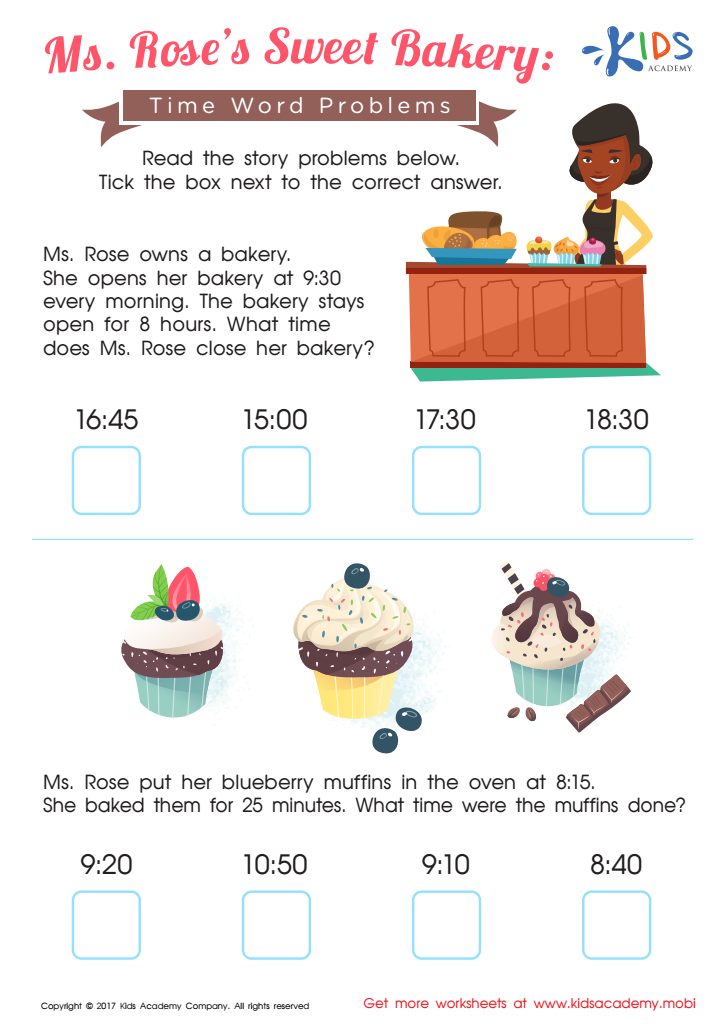

Ms. Roseв's Sweet Bakery Time Worksheet


Important Years in History Worksheet
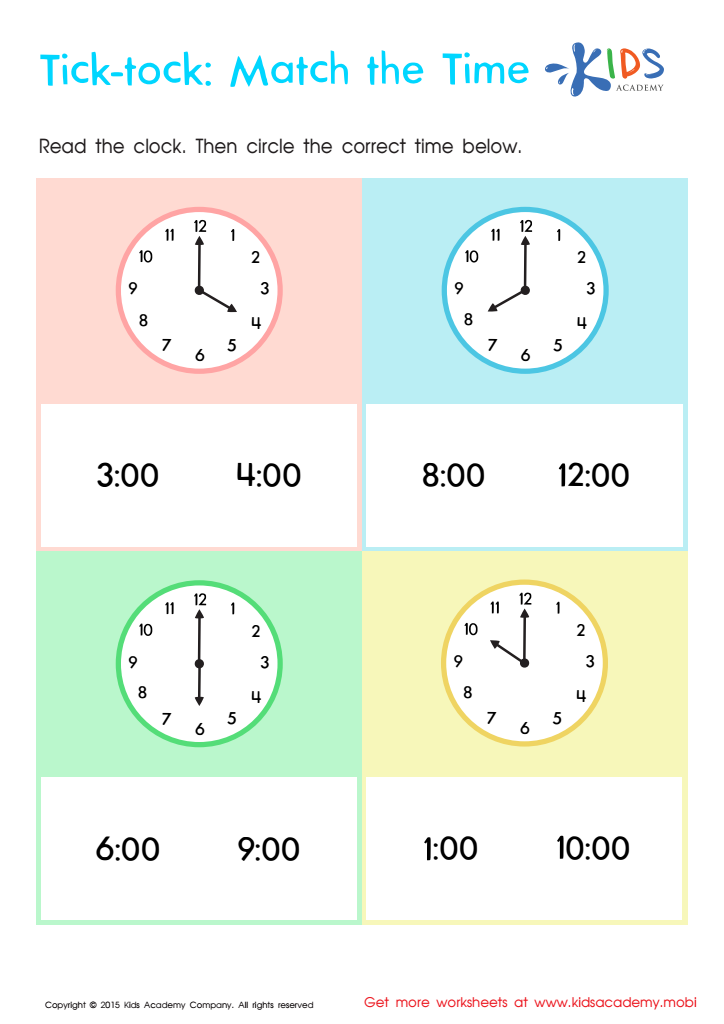

Telling The Time Worksheet: Part 4
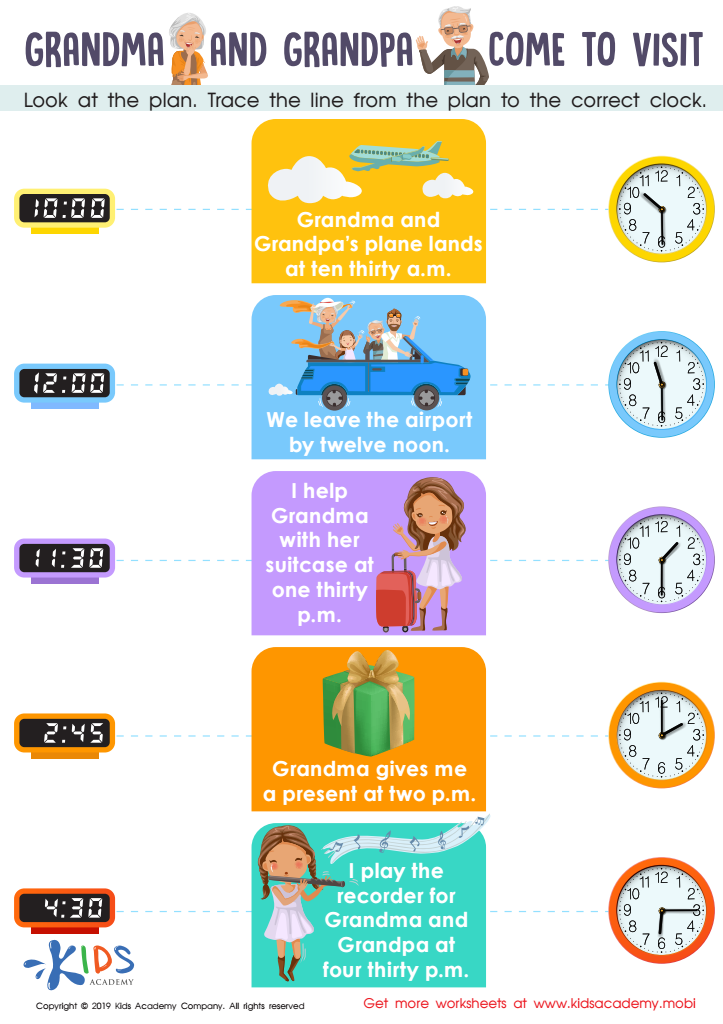

Grandpa and Grandma Come to Visit Worksheet
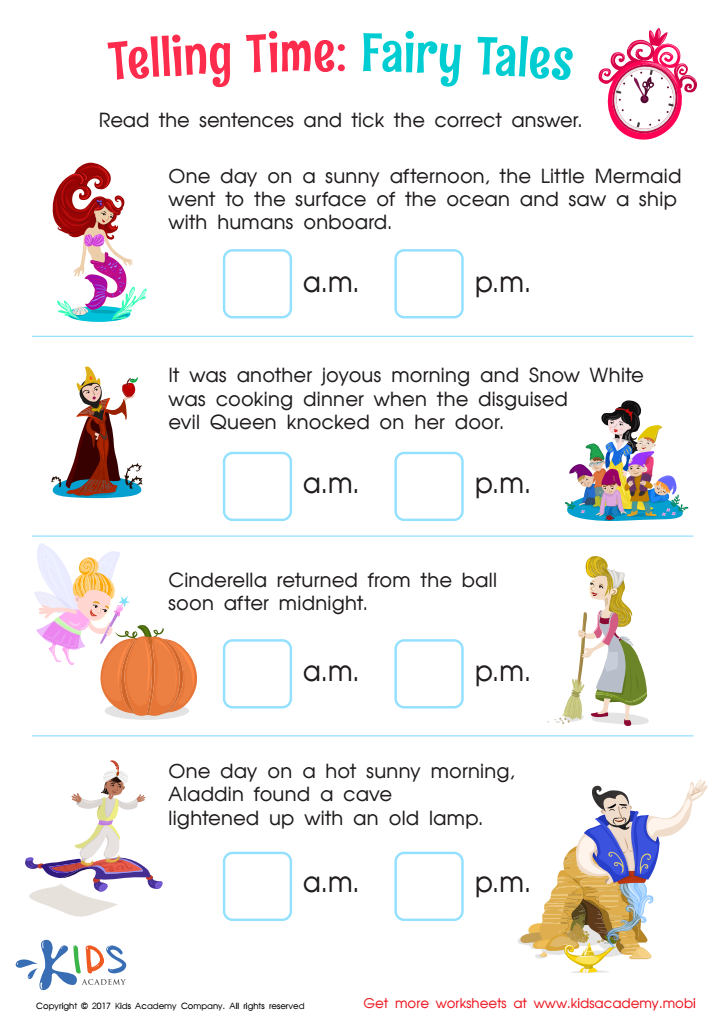

Telling Time: Fairy Tales Worksheet
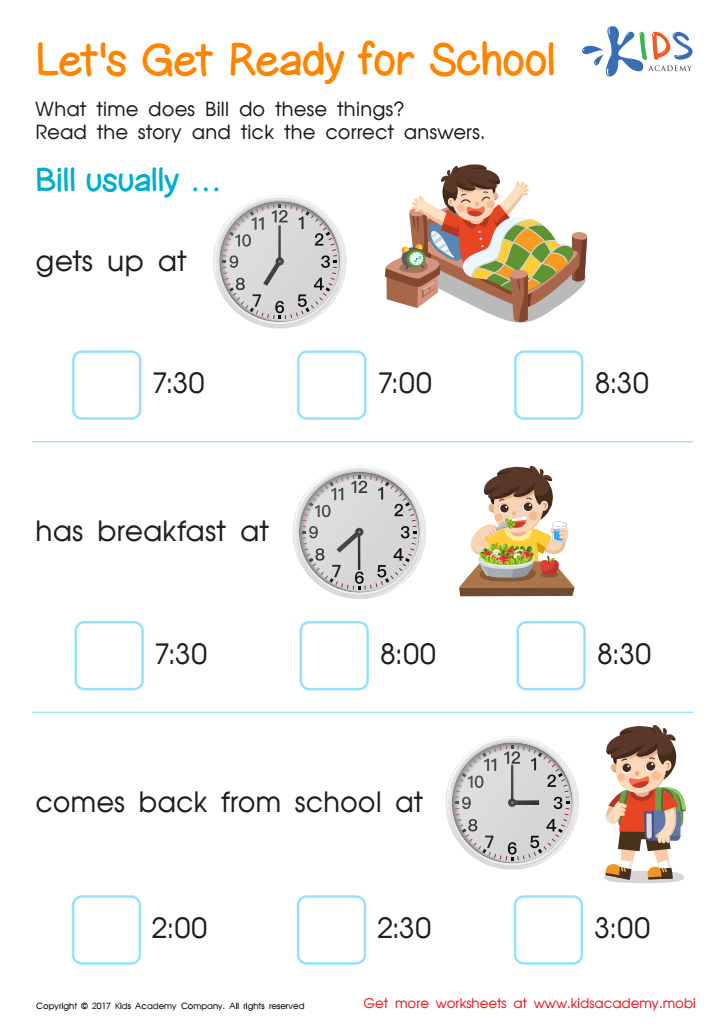

Lets Get Ready For School Time Printable
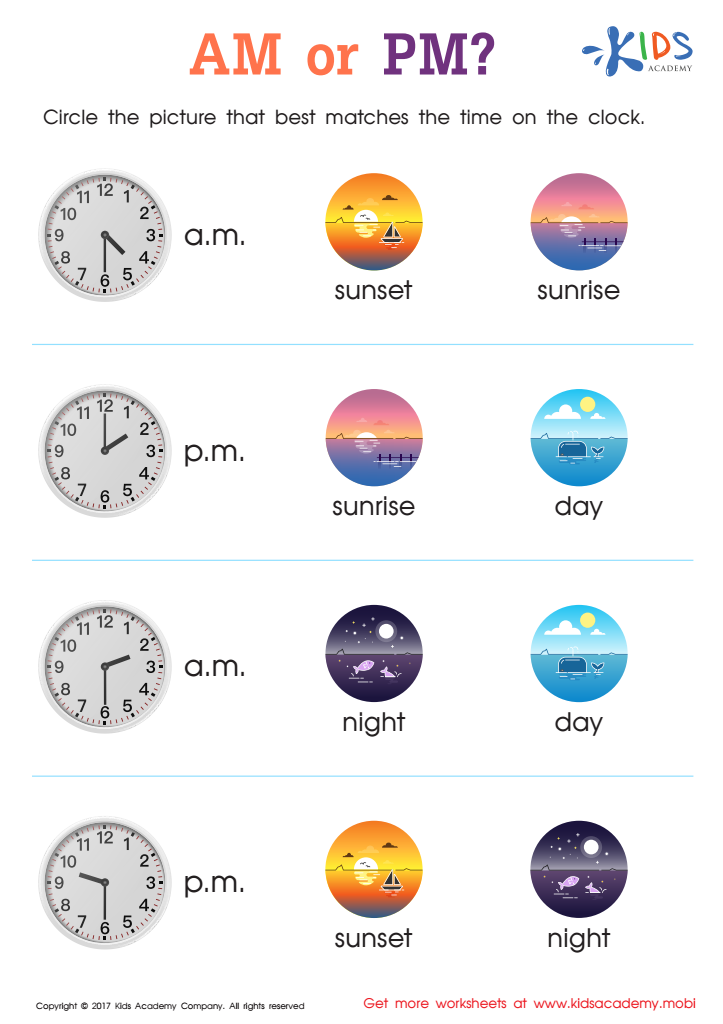

AM or PM? Time Worksheet
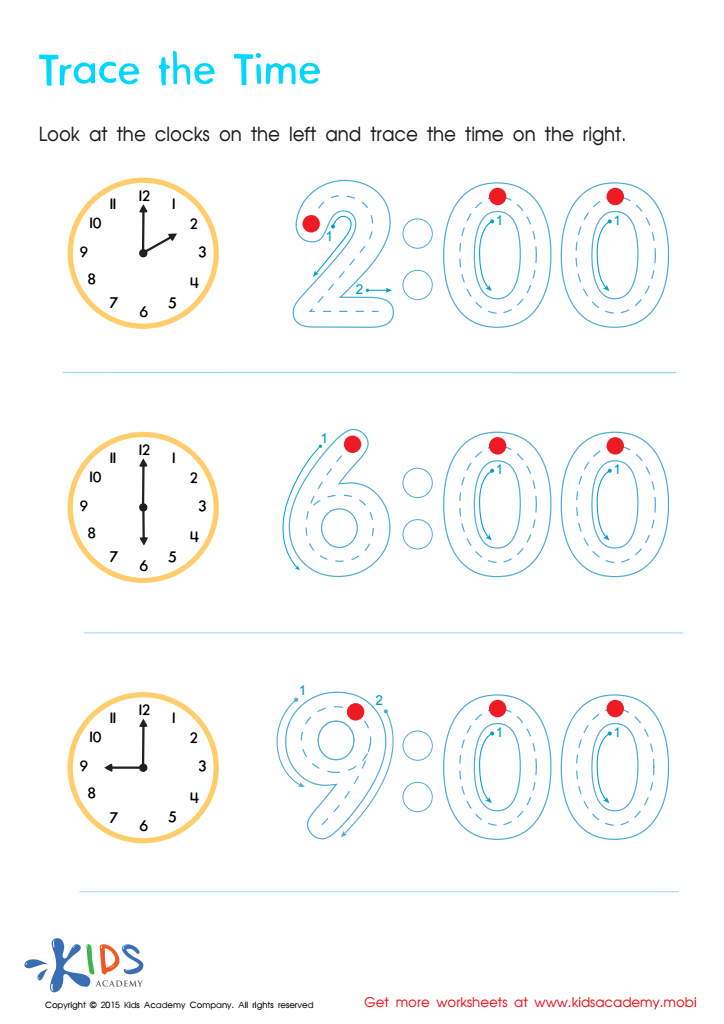

Telling The Time Worksheet: Part 2
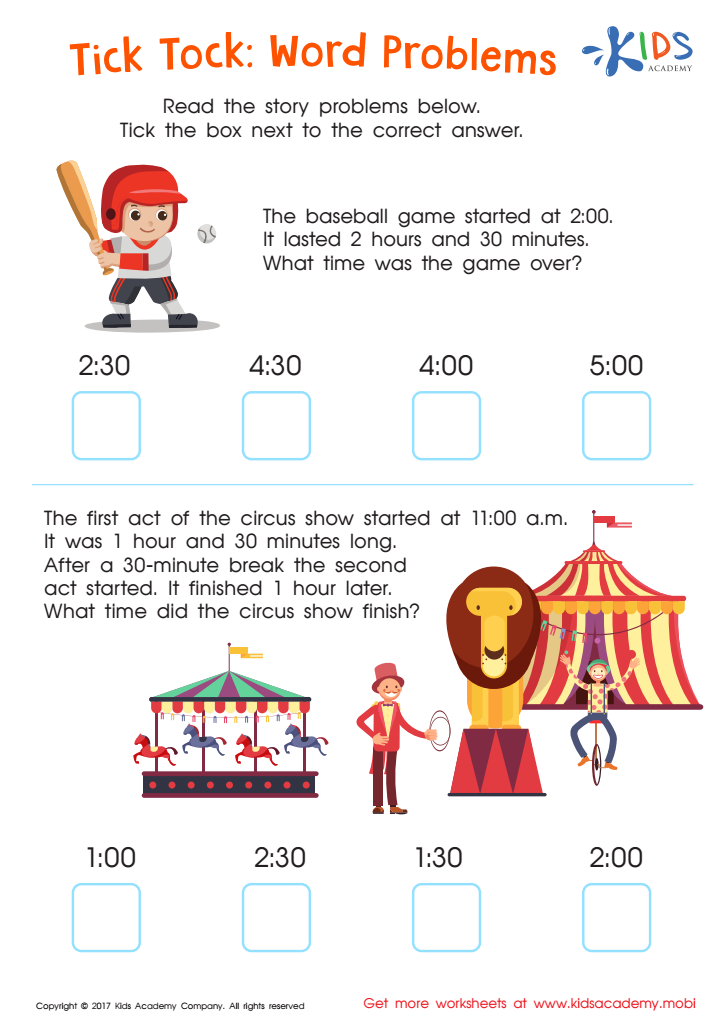

Tick Tock Word Problems Time Worksheet
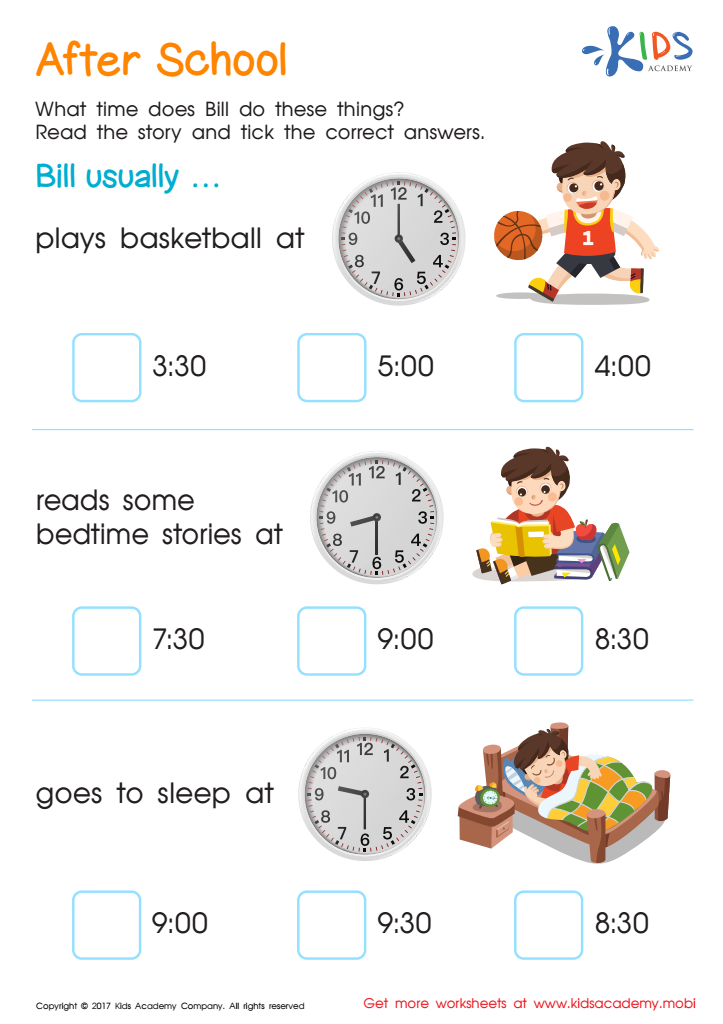

After School Time Printable
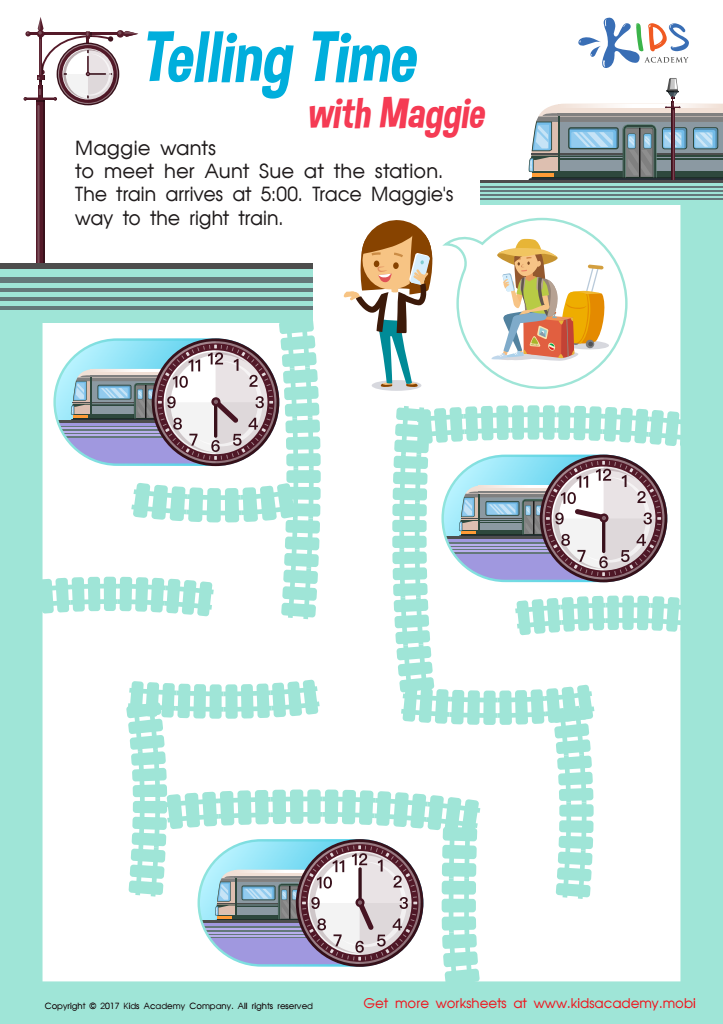

Telling Time With Maggie Time Worksheet
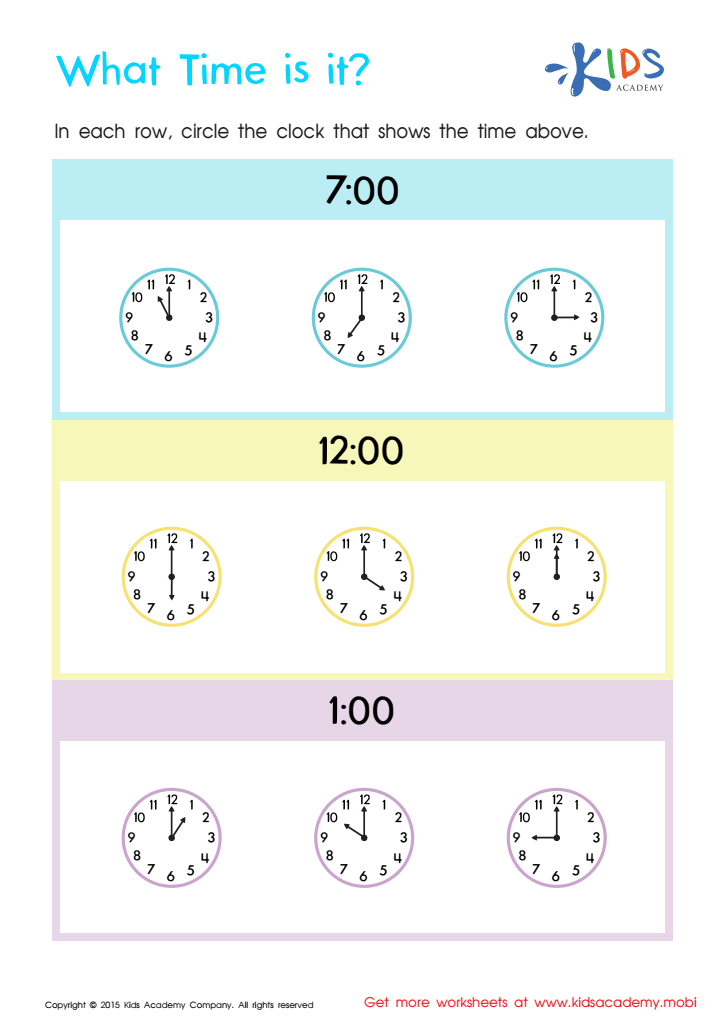

Telling The Time Worksheet: Part 3
Extra Challenge Time (ECT) for ages 5-7 plays a pivotal role in fostering a growth mindset and supporting individualized learning. This age group is particularly impressionable, and ECT provides opportunities for children to engage more deeply with subjects they are passionate about or curious about. Providing additional challenges enhances their critical thinking, creativity, and problem-solving skills, laying the foundation for lifelong learning.
Parents and teachers should care about ECT because it helps to cater to varying learning paces. Some children may grasp key concepts quickly and require more enrichment to remain motivated and engaged. This additional challenge prevents boredom and encourages enthusiasm for learning. Furthermore, it can boost children's confidence as they tackle tasks that extend beyond the standard curriculum.
ECT also offers a unique platform for collaboration among peers, encouraging teamwork and communication skills. It creates an environment where children can share ideas and support each other, fostering social skills and emotional development.
Ultimately, incorporating Extra Challenge Time in educational settings recognizes the individuality of each child, allowing them the space to explore their interests more freely while nurturing their innate curiosity and potential. Parents and teachers' advocacy for this practice is essential in cultivating eager, resilient learners.
 Assign to My Students
Assign to My Students






















